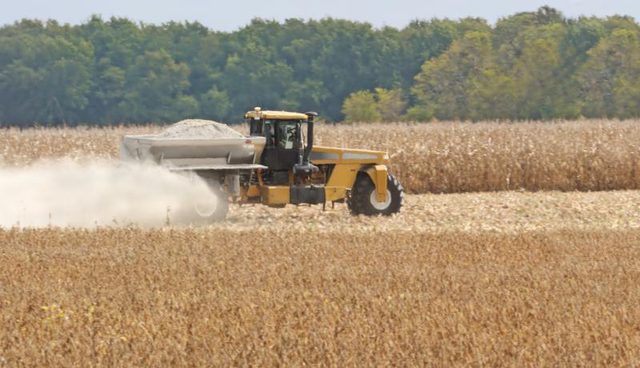Bulbs
Flower Basics
Flower Beds & Specialty Gardens
Flower Garden
Garden Furniture
Garden Gnomes
Garden Seeds
Garden Sheds
Garden Statues
Garden Tools & Supplies
Gardening Basics
Green & Organic
Groundcovers & Vines
Growing Annuals
Growing Basil
Growing Beans
Growing Berries
Growing Blueberries
Growing Cactus
Growing Corn
Growing Cotton
Growing Edibles
Growing Flowers
Growing Garlic
Growing Grapes
Growing Grass
Growing Herbs
Growing Jasmine
Growing Mint
Growing Mushrooms
Orchids
Growing Peanuts
Growing Perennials
Growing Plants
Growing Rosemary
Growing Roses
Growing Strawberries
Growing Sunflowers
Growing Thyme
Growing Tomatoes
Growing Tulips
Growing Vegetables
Herb Basics
Herb Garden
Indoor Growing
Landscaping Basics
Landscaping Patios
Landscaping Plants
Landscaping Shrubs
Landscaping Trees
Landscaping Walks & Pathways
Lawn Basics
Lawn Maintenance
Lawn Mowers
Lawn Ornaments
Lawn Planting
Lawn Tools
Outdoor Growing
Overall Landscape Planning
Pests, Weeds & Problems
Plant Basics
Rock Garden
Rose Garden
Shrubs
Soil
Specialty Gardens
Trees
Vegetable Garden
Yard Maintenance
Is Lime Fertilizer Poisonous to Animals?
Is Lime Fertilizer Poisonous to Animals?. Lime, often used to adjust soil pH in the yard and garden, may be harmful to pets and other animals, as well as humans depending which type you use. Slower acting limes are generally nontoxic, while those that act quickly are not recommended for use around animals.

Lime, often used to adjust soil pH in the yard and garden, may be harmful to pets and other animals, as well as humans depending which type you use. Slower acting limes are generally nontoxic, while those that act quickly are not recommended for use around animals.
Why to Use Lime
Lime is used to raise the pH in acidic soils, making it more alkaline or "sweet." The majority of plants need a pH between 6.0 and 6.5. At this level, most of the nutrients plants need to access are available. Lower or higher levels, can block some elements from consumption. There are exceptions to this rule -- a handful of plants that thrive at higher and lower pH levels, so always check the recommended soil levels for your particular plant. Purchase a soil test kit from your local garden center to see if lime would be beneficial to your garden.
Caustic Lime
Materials that are "caustic" are known to irritate or burn through organic materials, including skin and other body parts on both humans and animals. Two types of lime are caustic: quicklime and hydrated lime. Quicklime (calcium oxide), also called burned lime, works as its name implies, quickly. This is relative to how long soil amendments of other kinds take, and it may take several years for measurable results. Likewise, hydrated lime (calcium hydroxide), also called slaked lime, is a fast-working, but potentially harmful, lime. These both need to be used with great care and are not recommended for the average homeowner, especially those with pets and children.
Non-Caustic Lime
Some non-caustic versions of lime are safe to use around pets and animals. For the animal's safety, don't allow them into areas where you have applied the lime in the event they accidentally ingest it. Calcitic limestone (calcium carbonate), also called aglime, is an economical and safe way to lime your garden. Dolometric lime is similar to aglime, but adds magnesium and calcium to the soil as well, which can be helpful in regions with nutrient deficiencies. Gypsum (calcium sulphate), is another natural lime that's safe to use around humans and pets. These are available in powdered or pellet options, depending on your preferences. Pellets take a bit longer to take effect than powders, because they have to melt down, but are significantly less messy to spread. The key to keeping the process moving is to water the ground regularly until the lime has worked down into the soil.
How to Apply Safely
Use a drop spreader to apply lime evenly to the area with low pH. Choose a day with calm winds so the lime won't blow around to unwanted locations. Wear long pants, closed-toe shoes and gloves, as well as a dust mask and protective eye wear, particularly if you use powdered versions. While the non-caustic limes are not dangerous, they can still irritate skin and lungs just as any dust can. Wash your hands thoroughly after using and keep children and pets out of treated areas. Apply up to 150 pounds per 1,000 square feet, depending on the results of your soil test. The general rule of thumb is that 8 pounds of lime raises the pH by 0.1 per 1,000 square feet. After spreading the lime evenly over the area, water it with a hose until damp to lock down the lime and prevent it from blowing away or being picked up on clothing or fur.